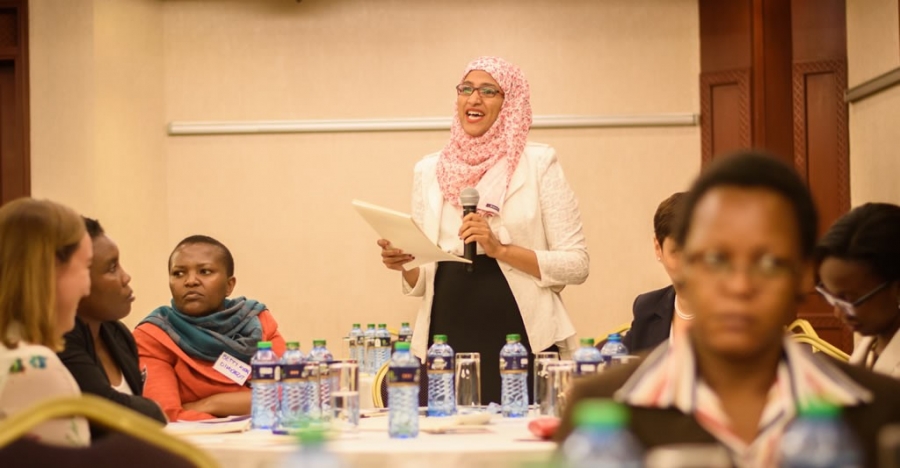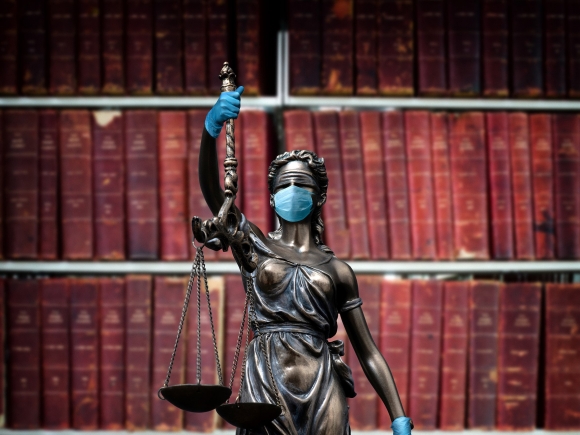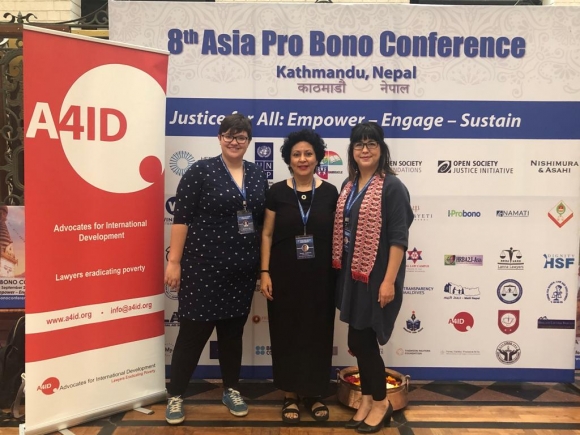
By: Advocates for International Development
In September/October 2016, Advocates for International Development (A4ID) ran trainings for commercial lawyers in India and Kenya on the UN Guiding Principles on Business and Human Rights (UNGPs) and how to advise business clients in this emerging area of practice. The training was delivered in partnership with pro bono lawyers from Clifford Chance, Weil, Gotshal & Manges, and Linklaters.
ROLE UK supported the Kenya training by enabling UK lawyers to travel to Kenya on a preliminary scoping visit to ensure that the training was tailored to the specific needs of Kenyan lawyers. ROLE then enabled the lawyers to travel out to Nairobi again to deliver this bespoke training.
In total, the training was delivered to over 80 lawyers, and a further 70 senior lawyers and business leaders met for an evening to discuss the relevance of the UNGPs to them. Surya Deva, the Asia-Pacific representative on the UN Working Group on Business and Human Rights delivered this in New Delhi, and in Nairobi, the evening guest speaker was the leading businessman and chair of the Comcraft Group, Manu Chandaria, who highlighted the importance to business of lawyers understanding the UNGPs.
ROLE has enabled the video recording of the lectures in Kenya, so A4ID provide ongoing support to the lawyers who were trained through online learning materials and peer-peer knowledge sharing groups involving international lawyers who have been applying the UNGPs in their work for some time.
Pro bono lawyers have been key to this programme’s impact. Why?
Firstly, interest in the UNGPs was quite low among lawyers as there had been little awareness raising with commercial lawyers in either country previously. Further, particularly in India, corporate/commercial lawyers generally perceive themselves quite separately from ‘human rights lawyers’ and NGOs are not usually considered relevant to the practice of business-oriented lawyers. These factors meant that motivating people to attend took at least as much work as preparing the training.
If A4ID had offered training independently in this context – even with the best, paid trainers in the world – getting lawyers to attend would have been extremely difficult. The fact that international lawyers from firms well-known for their corporate legal practice were delivering the training and endorsing the content, meant there was interest and a business incentive to participate. It gave the training credibility in a commercial legal context, and built on existing relationships between firms across the countries. And, because the trainers weren’t being paid, their genuine commitment could not be discounted on the basis that they were just doing it for the money.
The Independent Review and Learning Exercise conducted by ROLE UK also highlighted this project as one which showcases the value of the pro bono model.
Now that the training has raised the awareness of lawyers from many leading commercial law firms in each city, getting lawyers to attend future training is likely to be much less of an issue. Already firms have asked A4ID for training on the topic for all their lawyers, and the Law Society of Kenya is keen for it to be included in their calendar of CPD training in 2017. Over time, pro bono input will complement other forms of input, making way for other gaps to be identified and met.
A4ID is grateful for the primary funding for this programme from the Clifford Chance Foundation, for additional funding from ROLE UK which enabled lawyers to travel to Kenya to scope, tailor and deliver the training and from Weil, Gotshal & Manges for the India work.
Further reading:




